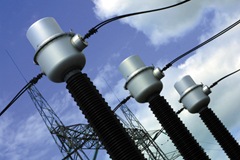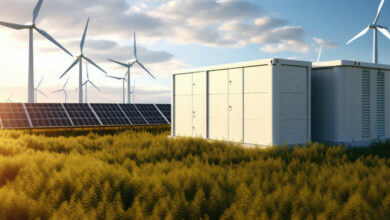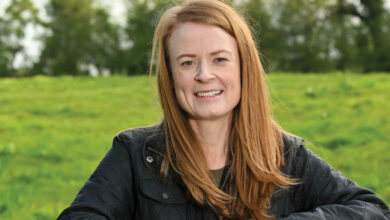The balancing act
 Enterprise Committee Chair Alban Maginness considers the various balances to be struck if Northern Ireland is to maximise the potential of its indigenous energy resources and the contribution they can make to the economy.
Enterprise Committee Chair Alban Maginness considers the various balances to be struck if Northern Ireland is to maximise the potential of its indigenous energy resources and the contribution they can make to the economy.
Over the past year the Committee for Enterprise, Trade and Investment has been getting to grips with the energy agenda. It has become apparent that, no matter how we look at it, there is always a balance to be struck between competing priorities and agendas.
An important example is the balance between traditional technologies, such as oil and gas, for generating electricity and green technologies which are becoming increasingly important in our energy mix. The department’s Strategic Energy Framework has a target of generating 40 per cent of Northern Ireland’s electricity through green energy by 2020. This can
be generated mostly by onshore and offshore wind. However, the wind doesn’t blow all the time and, if we rely solely on wind, there will still be periods of peak demand where we will have to use traditional generating methods to full capacity to meet our electricity needs.
We also need to consider the issue of security of supply: Northern Ireland is at the end of a long gas pipeline. If anything were to happen to interrupt the supply of gas through that pipeline, it is vital that we can meet our energy needs in other ways. This can be achieved through development of our renewable resources and through improved interconnection with the Republic of Ireland and with Great Britain.
Economics
There is also a balance to be struck between established green technologies, such as wind energy, and emerging technologies such as tidal, wave and biomass. Even within the biomass field we need to consider the balance between food crops and energy crops. But green energy is not only about meeting our energy needs: there is also the potential for us to be at the forefront of developing technologies in sustainable energy.
Government support for business is set to reduce and eventually disappear by 2013 under EU state aid rules. One key area in which support will continue and increase is for projects that can demonstrate innovation and for projects requiring a high degree of research and development. It is important that we in Northern Ireland, with our proud tradition in research and engineering, grasp these opportunities.
What better way to grasp them than in the growing field of green technologies? Herein lies the potential for job creation and for exports to growing markets but we must act now; countries like Germany and Denmark are already ahead of the game.
The balance between the need to incentivise green energy production and the alternative of leaving market forces to dictate what happens is an important one. In providing incentives, it’s important that we fund projects that would not otherwise happen. It is equally important that we provide the right incentives, at the right level, to encourage entrepreneurs with long-term vision to get into the renewable energy market and develop commercial scale energy projects.
It is not just about commercial scale renewable and sustainable energy projects. We must consider the balance between large scale and small scale generation. The Energy Saving Trust has estimated that by 2050 30 to 40 per cent of the UK’s electricity needs could be met through micro generation.1
With adequate incentives to drive micro- generation, and adequate investment in developing technologies, Northern Ireland could potentially meet this figure much earlier with the added benefits of being able to export technologies and provide skilled jobs in the sector. Again, however, other countries are getting ahead of us so we must act quickly.
The department ran its Reconnect programme until 2008 and recognised that this scheme created increased demand for micro-generation. However, there are currently no plans to re- introduce or replace this scheme. Householders therefore have little added incentive to consider micro-generation. There is also a sense that people are still waiting to see what new incentives will be introduced before they consider going down this route. So it seems that there is
still an expectation that something will be done to incentivise the market.
There are other things that need to be considered too, not least of these is the environmental balance between the need to have a cleaner, greener, pollution-free environment for future generations to enjoy and the environmental costs of having wind turbines, generating plants and electricity pylons dotted across our landscape.
Responsibility
There is also the question of what we as politicians decide to do in the Assembly, in Westminster and at EU level and balancing this with the ability of this small region to deliver. It is essential that we work with our partners at national and EU level to ensure we have the capacity to implement whatever energy solutions are proposed. It is also important that our government structures are appropriate for the times in which we live and for the problems and priorities that we face.
 There may be a case for a Northern Ireland Department for Energy, similar to the Department of Energy and Climate Change which was recently formed in Westminster, to manage this. Neither the committee nor the Assembly has debated the matter but it would be interesting to see what direction the debate would take.
There may be a case for a Northern Ireland Department for Energy, similar to the Department of Energy and Climate Change which was recently formed in Westminster, to manage this. Neither the committee nor the Assembly has debated the matter but it would be interesting to see what direction the debate would take.
All in all it is a very challenging task. However, it is essential that we get the balance right so that we have a secure, sustainable, cost-effective energy mix which maximises our potential to become self-sufficient and even become a net exporter of energy and renewable energy technologies. It is for these reasons that the Assembly Committee for Enterprise, Trade and Investment is taking a keen interest in renewable energy and why we will be engaging with small and medium sized enterprises in the green energy sector to see how we can maximise the potential of our green energy industries.
The committee also intends to engage at a European level to ensure that we have the opportunity to see and learn from what is happening there, that we are aware of what Europe can do for us, and that our MEPs are aware of what they can do to help us achieve our goals.






